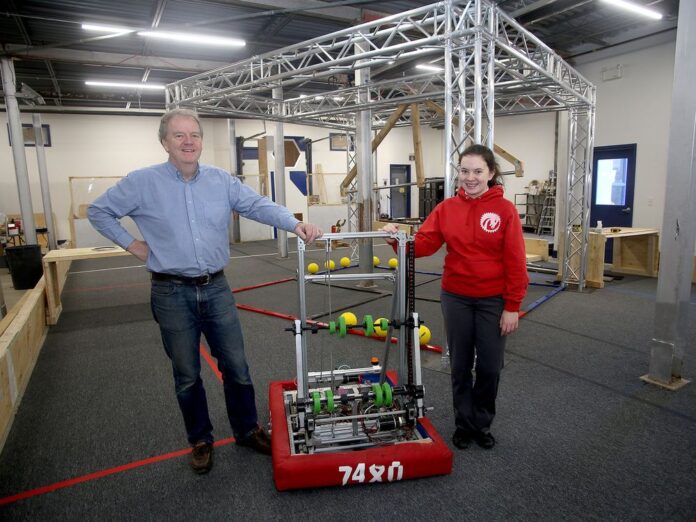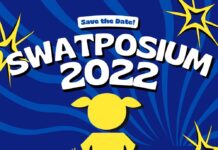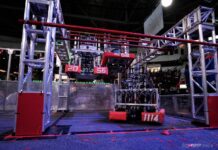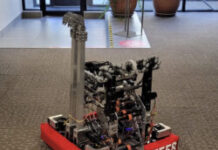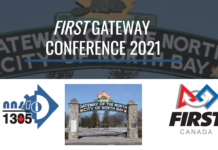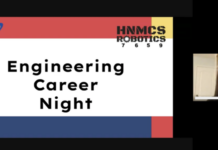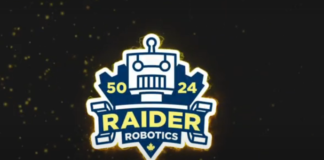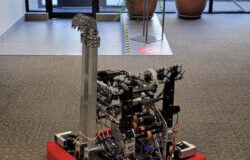Team 7480, the Machine Mavericks from Kingston, Ontario, are entering our third FRC season. We’ve had a fantastic time and have learned a lot. With our own startup challenges fresh in our minds, we’ve asked ourselves, “Why aren’t there more teams in our area?” “Why isn’t FRC as popular as hockey?” Our experience over the past three years has shown us that some of the most significant obstacles to starting a successful FRC team include: finding space, purchasing equipment, and learning robot programming. These challenges are particularly acute for low-resource teams.
To help address these problems locally, we decided to adopt the incubator model popular in entrepreneurial areas, including Silicon Valley, Research Triangle Park, and Waterloo. In these incubators, startup companies can take advantage of shared infrastructure and expertise, allowing them to focus on what differentiates their business rather than on the generic infrastructure required of all successful businesses. In our attempt to replicate this model, we have worked with FRC team 2708, Lake Effect Robotics, to renovate a derelict 10,000 square foot warehouse and adapt it for FRC teams. The new space contains a full-size FRC practice field, a full machine shop, a computer lab, an FTC field, and FLL tables. By opening this space up to other FIRST teams and organizations, we hope to drive innovation in the FIRST community.
Shared infrastructure, of course, has limited value if teams cannot meet in person because of current COVID-19 restrictions. While these restrictions have hampered our ability to collaborate with other teams in person, we are currently developing a virtual instrumentation lab for use by any team with an Internet connection. With funding from the Retired Teachers of Ontario District 20, we are working to bring physical mechanisms online. The virtual lab will consist of remote desktops through which teams can connect to robot mechanisms, including a vision-guided, turreted shooter, an elevator with an articulated arm, and a variety of drive bases for testing autonomous routines. We hope to build the equivalent of arcade games around these mechanisms. Remote teams could log in, characterize the systems remotely, upload their code, and compete to get the highest scores by shooting balls, placing objects, or following trajectories.
We believe that we can lower the bar for starting and growing FRC teams in our area through shared physical space. We are equally optimistic that providing online access to physical mechanisms will help novice teams, both local and distant, collaborate with more advanced teams to solve difficult design and programming challenges.
By Olivia O’Driscoll


